11 Earth Day Food Storage Tips To Save Money & The Planet

Today's a very special day – Earth Day! Since 1970, the month of April has been known as Earth month, and today, 22nd of April, is Earth Day. It can feel rather confusing and even intimidating 'going green'.
Earth Day is about us learning that it's the little things that we do that can collectively make a big difference to the planet we call home. We've decided today to focus on a topic that affects us all – food wastage.
Nearly 40% of all food produced in the US is thrown away.
Now, even if you're not really all that environmentally conscious, think of how much money you're throwing away each year!

The sad thing is, this wastage is not down to people being fussy eaters, or irresponsible world citizens.
It's a case of good people, who don't want to waste food, but who simply don't know how to make food last.
We've put together some ingenious little storage tips for foods. Follow these, and you're bound to seriously cut down on food wastage. And, not only will the planet thank you, so will your wallet!
How to store...

1) Hard herbs
These are herbs that have woody stems, such as rosemary, thyme, oregano etc.
Firstly, don't wash your herbs (it's adding extra moisture that can spoil it). Only wash portions of herbs as and when you need them.
Wrap your hard herbs in a damp paper towel, and then wrap the paper towel loosely with plastic wrap. Now store in your crisper (usually the bottom compartment of your fridge that stores fruit and vegetables).
The damp towel should release just the right amount of moisture so your herbs don't dry out, but not too much moisture which will spoil your herbs

2) Soft herbs
Examples are basil, cilantro and basil. Soft herbs need more moisture than hard herbs, but again, overloading them with moisture is the fast track to spoiling.
As with hard herbs, don't wash them before storage. Use kitchen shears to snip the base of the stems, and then place them into a glass of water.
With basil, you can leave it in the glass of water at room temperature, but with other soft herbs, place a plastic bag over the herbs and glass and place the whole thing in the fridge upright.
The water should pump enough moisture into the herbs to stop them drying out without over-wetting them.
3) Leafy greens
The reason why green leaves spoil fast is the same as for herbs – too much moisture. But not enough moisture will also turn them into dry, tasteless leaves.
As with herbs, don't wash green leaves before storing them (just wash handfuls as and when needed).
First, pick through your leaves to get rid of any that are wilted or slimy, as they will infect the healthy leaves. Use kitchen shears to snip off slimy parts of large leaves so you don 't waste the whole leaf
Then, store them in a sealed container with a damp paper towel placed on top. This will give them enough moisture, without inundating the leaves with droplets of moisture that will spoil them.
4) Berries
Berries spoil because of mold spores which love the moist skin. Get a large bowl, and dilute a cup of vinegar into 3 cups of water.
Dip your berries into this vinegar bath. The vinegar will kill the mold spores. Next, rinse your berries in a colander with lots of running cool water (you want to get rid of the vinegar taste!)
Now, you need to get your berries dry. The vinegar bath has rid the skin of mold spores, but that doesn't mean they can't grow again. Just as with herbs and greens, it's too much moisture that can spoil berries.
Use a salad spinner and spin your berries for around 30 seconds, until they are completely dry to the touch.
Line a container with dry paper towels, and then place your berries inside (the towel will absorb any excess moisture left).
Place a lid over the container, but don't seal! Leave the lid open slightly to avoid trapping any moisture.
5) Hard cheese
Hard cheeses can become dry and dehydrated within days. The reason?
Cheese needs to breath, and when you wrap it in plastic wrap (or keep it in the plastic wrap it came in) you're stopping it from breathing.
Take your cheese out of it's plastic wrap, and then wrap it in parchment paper. Now place the wrapped cheese into a plastic bag (make sure it's not too small, and there's plenty of space around the cheese), and place into your fridge.
6) Blue cheese
The issue with blue cheese is not so much it's shelf life, but the fact that it is so powerful, it infects the flavor of other cheeses and food items in your fridge.
Store blue cheeses in the same way as hard cheese, but double wrap with parchment paper.
Then place it in an airtight container (making sure there is 'breathing space' around it), and place in the fridge.
7) Soft cheese
This is the one type of cheese that is OK to be wrapped in plastic wrap, but just remember to throw the wrapping away every 2 days and replace with fresh wrapping if there is still some leftover.
Cheeses that are extremely soft, such as mozzarella or ricotta, should be stored in a plastic container in it's own, natural juices without any kind of wrap.

8) Fresh fish
Fresh fish goes off within 24 hours, even when refrigerated. So try to only buy it if you know you're going to cook it within a day!
If you've bought too much, then the only option you have is to freeze your fish. Place fillets into a thick freezer bag (normal plastic wrap won't do). Make sure you press out all the air inside the bag around the fish.
Then, place the wrapped fish into another freezer bag, and press out all the air in this bag too.
Now place in the freezer and your fish will keep for a few months.

9) Leftover wine
Even sticking the cork or cap back on a bottle of wine only keeps it fresh for another day or so.
That's because there is now air in the bottle. Instead, decant the leftover wine into an empty jam jar or other glass or plastic container . You want a container that's just a little too small for the amount of liquid you have left.
It needs to be a little too full, and some wine should spill out when you put the lid on it. This makes sure no air is getting in. You'll now find your wine will last up to a week in the fridge.
10) Brown sugar
Brown sugar tends to stick together, making it difficult to work with, especially when left in the packet.
Instead, decant all of the sugar into a container, and then place a piece of marshmallow or a slice of bread on top. Now seal with a lid.
The moisture in the marshmallow or bread will stop the brown sugar from clumping.
If your brown sugar has already clumped up, and you're finding it difficult to separate the granules, place the mass into a microwavable bowl and heat for about 30 seconds.
Now the clumps should easily disintegrate with a fork.

11) Bread
Bread is a difficult food item to store. Breads with no sugar or fat in, such as ciabattas and baguettes, are literally only good for about 2 days.
This is the one thing that your fridge can't help you preserve. Bread actually becomes stale faster when placed in a fridge, so avoid it!
Buy a ceramic bread box, which allows just enough air circulation to keep your bread moist.
If you don't have one, a really good workaround is to sit your bread on top of a wooden cutting board with the cut side down.
Wooden cutting boards, unlike synthetic boards, allow your bread to breath. But by covering the cut side with the wooden surface, it stops the exposed crumb from drying out.
See? It's not hard to make your foods last, saving you money, and loving the planet back!




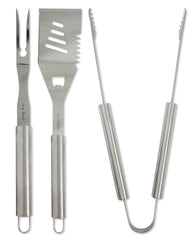
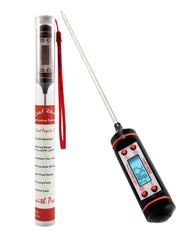

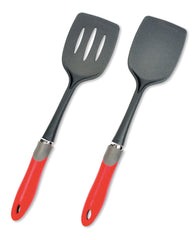
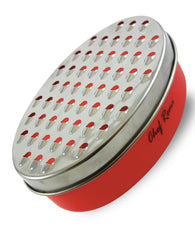
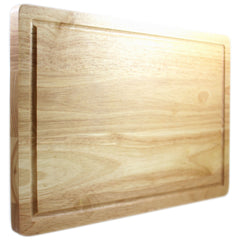
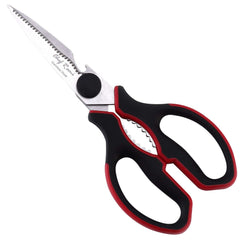
Comments
merk#1
Wow ! The wine tip actually helped me since I’m having a glass of wine as I read the article but had enough for today and will leave it for tomorrow. Very helpful indeed!
Bobby Shure#2
Excellent article…timely and these suggestions and tips will come in handy for sure. We must be very mindful of Mother Earth and act in accordance by eating to live instead of living to eat!